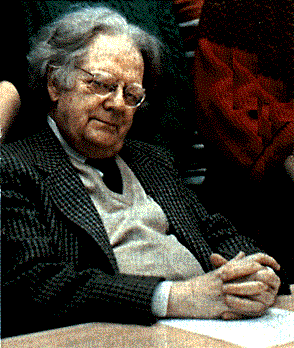Here’s a nice addition on the anniversary our nation was signed into law: Frye in “Trends in Modern Culture” describes liberalism as “the true faith in democracy”:
This is liberalism, the doctrine that society cannot attain freedom except by individualizing its culture. It is only when the individual is enabled to form an individual synthesis of ideas, beliefs, and tastes that a principle of freedom is established in society, and this alone distinguishes a people from a mob. A mob always has a leader, but a people is a larger human body in which there are no leaders or followers, but only individuals acting as functions of the group. Tolerance of disagreement and criticism among such individuals is necessary, not because uniform truth is nonexistent or unattainable, but because the mind is finite and passionate. (CW , 237)
Edward Greenspon in The Toronto Star today illustrates why the Harper government does not meet this standard:
For all its neglect, Liberalism actually stands for something important. It is, in the words of Canadian philosopher Charles Taylor, not a neutral concept but “a fighting creed.” It says: “That is not the way we do things” in the face of illiberal behaviours, whether these be misleading MPs about signatures on documents, failing to disclose the costs of fighter jets or prisons, proroguing Parliament rather than abide by rulings, attacking the legitimacy of independent watchdogs from Elections Canada to the Parliamentary Budget Officer, jamming the judiciary or weakening the channels of knowledge by which decisions can be taken on the basis of evidence rather than belief.


Frye’s comments on liberalism are very much in the social democratic vein of John Stuart Mill. I am reminded of another phrase Stephen Harper is throwing about: “real Canadians,” though I guess both words should be lit up with capitals as “Real Canadians,” he is so clearly hypostatizing the term in an insidious and McCarthyistic way. The next thing you know he’ll be using the phrase “anti-Canadian” (if he hasn’t already). As Frye makes clear in this excerpt, there are no real Canadians or Canadian identity in that sense: there are only individuals, and society, in its most genuine form, is an expression of the individuals in it, who in turn are what the society is for. In The Double Vision, Frye asks: “What is the difference between the spiritual aspect of primary concerns and the secondary or ideological concerns just mentioned?” He answers thus:
“I think the difference is expressed in two types of society, one
primitive and the other mature. A primitive or embryonic society
is one in which the individual is thought of as primarily a
function of the social group. In all such societies a hierarchical
structure of authority has to be set up to ensure that the
individual does not get too far out of line. A mature society, in
contrast, understands that its primary aim is to develop a
genuine individuality in its members. In a fully mature society
the structure of authority becomes a function of the individuals
within it, all of them, without distinctions of sex, class, or race,
living, loving, thinking, and producing with a sense of space
around them. Throughout history practically all societies have
been primitive ones in our present sense: a greater maturity and
a genuine concern for the individual peeps out occasionally, but
is normally smothered as society collapses back again into its
primitive form.”
I think there is little doubt about what kind of society Stephen Harper has in store for us.